Exciting Spring After Autumn of Disappointments? (Prolly Not)
Watching allergic reactions to autumn "hits" like Far Cry 6 or Battlefield 2042 may put you in a truly revolutionary mood, but will the biggest publishers take this lesson seriously? This is a rather rhetorical question – of course they won't.
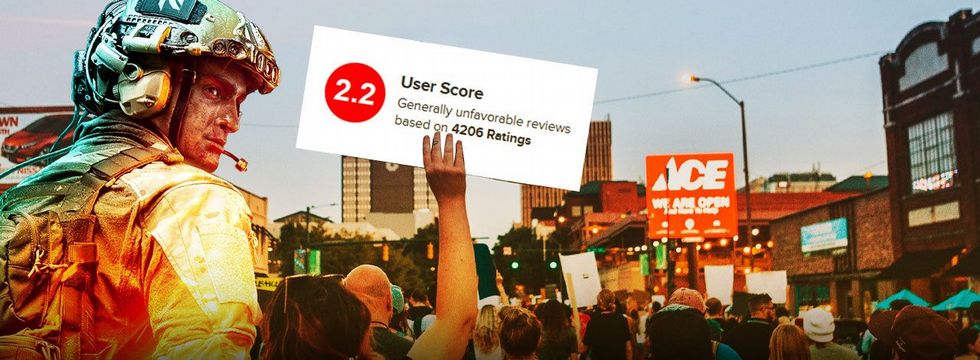
October and November, the months when huge studios release their high-budget hits to jump on the Christmas and Black Friday shopping spree, were marked by scandals this year. Calling it "disappointments" doesn't cut it – the way some of the biggest releases were carried out this year rightfully caused outrages. Far Cry 6 was a poor rehash that, once again perhaps, proved that the devs at Ubisoft lack ideas or volition to give us truly fresh games. Call of Duty: Vanguard had none of the WW2 climate, a campaign sufficient for a single evening, and underwhelming gameplay modes. Battlefield 2042 has more gaps than EA's microtransaction ideas. Nobody expected that Grand Theft Auto: The Trilogy would be released as The Definitive Edition just for the sake of being ironic. In addition, there was yet another edition of Skyrim, this time for the tenth anniversary – that's another weird thing, because I could swear new releases of this single game have been an annual tradition at least since George Bush Jr. was President.
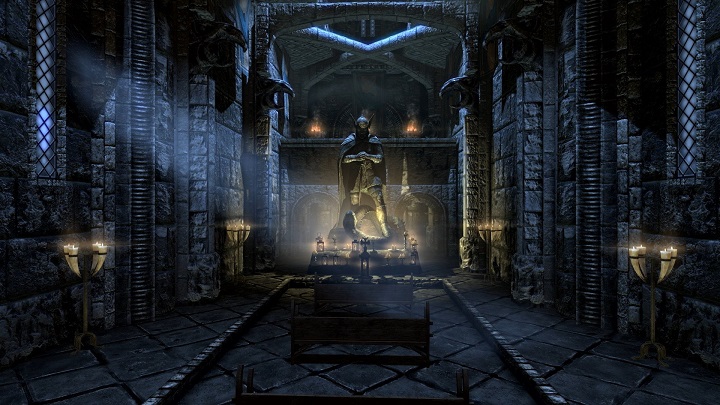
Spirits were somewhat lifted with Forza Horizon 5, but its formula also excluded any revolutionary novelties – it's just another excellent installment of the series that's always been great, as well as Halo Infinite and Guardians of the Galaxy (the greatest decision of the latter production was that it didn't follow the absolutely bland The Avengers). However, these three games do not redeem the disastrous two months we've just had, and they lack the potential to change the bad taste 2021 will leave. A year that, in terms of great premieres, can be described as disappointing, assuming that you're in a good mood.
Anyway, disappointments aside: big games seem increasingly unable to deliver on their promises. This is not about disappointment arising from new ideas not working out as predicted or from exorbitant ambitions. No, the thing is that the new Far Cry, Battlefield or Call of Duty are weak, because the publishers WANTED them to be like that. They've minimized their efforts, possibly investment; in the best case, they decided not to push the devs to their limits. This time, however, they encountered strong resistance from players who are fortunately taking full benefits of one of their main weapons – reviews.
It's perhaps stranger since – with all due respect – our tolerance for bland conventionality of AAA games seemed endless, and developers were more often scolded for bold, but unpopular artistic decisions (vide The Last of Us: Part II). So it's nice to see the righteous anger of the players, feel the revolutionary excitement and foolishly hope that both they and the giants of the AAA segment will remember the fall of '21. Although we all know perfectly well that such will not be the case.
The last twelve months have highlighted the problem that has been clear for years: the owners of large annual franchises have become indecently lazy. This was proved by Ubisoft, releasing the next edition of Far Cry 3 with a slightly elaborate formula, or by EA, who reused maps from the previous parts in Battlefield 2042. In addition, the autumn release arrived on the market in average technical condition at best, working at your own whim at worst.
For sure, the pandemic is to blame – pampering and optimizing high-budget blockbusters in times where getting people to office is either difficult or illegal, is certainly no easy task – but even before Covid-19, the mode of operation boiled down to "release first, patch later." But let's agree on one thing – we do not expect games full of fascinating content, polished to perfection and surprising with innovative solutions from the likes of Ubisoft, Electronic Arts, Activision, and in recent years, unfortunately also Bethesda. So why conservatism and mediocrity have suddenly became so flagrant?
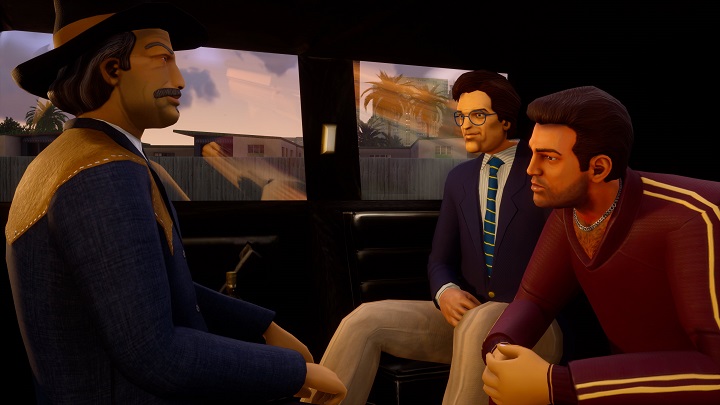

The lack of a substantial number of successful releases is all the more depressing because the new generation has just launched. We hoped that Sony and Microsoft would begin an onslaught of games that would compel us to buy a PS5 or XSX, but in 2021, high-budget exclusives were limited to Ratchet & Clank: Rift Apart and Halo: Infinite, respectively.
If we look at last year, autumn did blow anyone's socks off. Assassin's Creed: Valhalla is another conservative installment in an inhumanly trite series – a case similar to Far Cry 6, though perhaps less pronounced. You probably do not even remember Call of Duty: Ghosts II – you likely did not notice that the last installment was actually called Black Ops – Cold War. What remains are remasters and remakes of old hits, and although there were gems like Demon's Souls, it's difficult to be fully satisfied with the new versions of our beloved titles.
In 2020, though, the fall was marked by delicious productions that enjoyed the interest of a wide audience. There was Doom: Eternaland Half-Life: Alyx; Nioh 2 and Ori and the Will of the Wisps; Last of Us: Part II and Ghost of Tsushima. Even if the final months of 2020 weren't as successful, those before did deliver. And I have the impression that this alone has protected the biggest brands of EA, Ubisoft and Activision over the years – we were ready to turn a blind eye to their laziness, because there were so many new, interesting titles around. The ambition of other studios provided an airbag for the indolence of big gaming corporations. In 2021, this bag ran out of air. And when it turned out that Call of Duty: Vanguard or Far Cry 6 will apparently be the biggest titles we could get, the hard crash with reality was imminent.
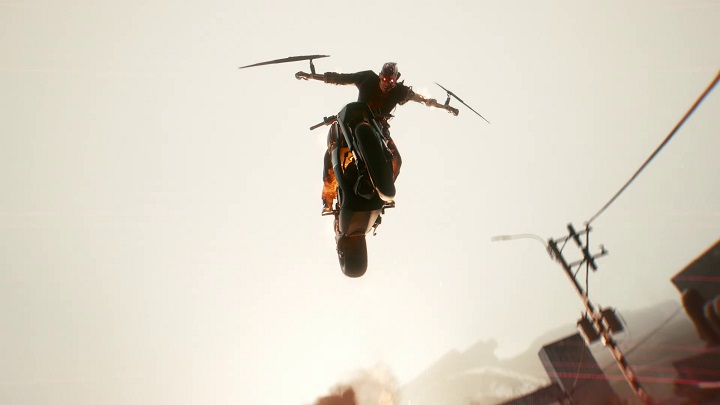
Did 2021 have any big hits? Resident Evil: Village in May, Ratchet & Clank: Rift Apart in June, then Halo Infinite, although was already winter. Something else? Psychonauts 2, Hitman 3, Returnal – these are all great games, but they're nowhere near Half-Life: Alyx or Ghost of Tsushima. In September, Deathloop was released, but that's just the final proof that it's easier to sell sand in the desert than an immersive sim after 2005. The biggest releases of recent months failed almost universally, and instead, we got great, but niche titles. Hence the fact that Far Cry 6, Battlefield 2042, and all of the aforementioned games are so underdeveloped and bland, hurts even more.

2021 looks all the worse when you look at all the games that were supposed to be released. And the list of postponed hits is really quite shocking, and who knows – maybe they would sweeten this nasty fall. In the last year, we were supposed to get games such as God of War: Ragnarok, Horizon: Forbidden West, Ghostwire: Tokyo, Dying Light 2, Hogwarts Legacy, Vampire: The Masquerade – Bloodlines 2, Gran Turismo 7 or Gotham Knights. But then, there's the future – with all the delayed games and a solid portion of it's own games, like Elden Ring, The Legend of Zelda: Breath of the Wild 2 or Starfield, 2022 could be simply amazing.
So, the players grabbed the metaphorical pitchforks, lit the metaphorical torches and set off for the metaphorical castle, i.e. they started giving embarrassingly low scores to disappointing productions. As I'm writing this, Call of Duty: Vanguard is the best-rated game from the AAA segment – with 37%, while Grand Theft Auto: The Trilogy is under the strongest flak, with an average of 5%. This year's editions of biggest names (apart from Forza Horizon 5) also got significantly weaker scores from the media.
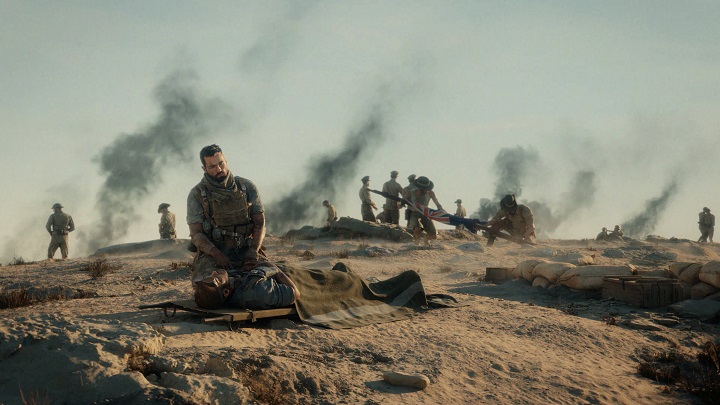
Activision and Rockstar's bosses probably do not lose any sleep over their Metacritic averages. The only thing they may be concerned about are the sales results, but here, too, the discontent of players has been voiced. Call of Duty: Vanguard is selling significantly fewer copies than previous installments, and old fans are increasingly maturing to take a leave of absence from it. Far Cry 6's results disappoint shareholders and Ubisoft stocks plummeted. The sales of the new editions of Skyrim and GTA: The Trilogy are a mystery so far, but it's hard to expect that the hopeless ratings will translate into commercial success. Only Battlefield 2042 can boast good financial performance, although the game servers are reportedly emptying at an alarming pace.
Is the fall of 2021 supposed to be the Spring of Video Games, in which the oppressed masses of players finally opposed their heartless masters, demanding fresh ideas, bold visions, and respect to consumers? It's a beautiful vision, but I think I've been part of this industry far too long to to take it seriously. Perhaps such series as Far Cry, Battlefield or Call of Duty actually hit a stonewall, and the players, milked over the years, realized that they were not being treated fairly. But this collision does not necessarily have to mean better days for these series.
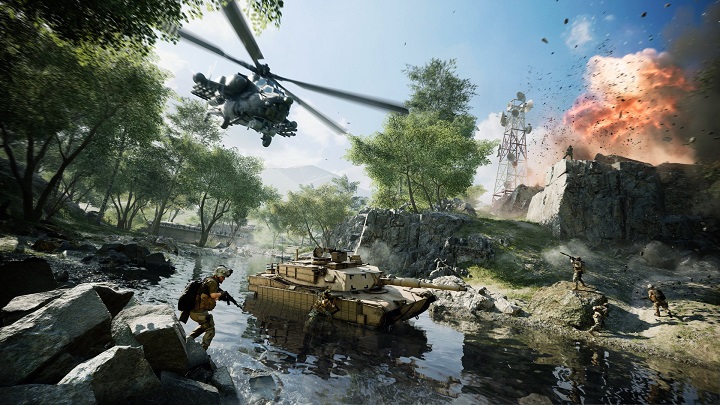
We should remember that this is not the first time that the greed of publishers was severely criticized by players. To be more blunt, it's yet again the greed of the very same companies. Until recently, Ubisoft released new Assassin's Creed annually, and the production line didn't seem to stop even for a moment. It was only curbed by the public's vehement backlash against nearly unplayable Unity and the poor sales of Syndicate. The French studio took a break, modified the formula... and now Origins and Odyssey have become the template for seemingly countless new installments. If I had to guess what the result of the ill-fated fall of 2021 would be, I'd say it would be the same case as above: one or two more ambitious follow-up installments that will set the news standard for rehashes, reiterated over the years ad nauseam.
And then, a lot could change for the worse. Do you remember that time when Star Wars: Battlefront was released, everyone scolded EA for severely limited content? Well, Electronic Arts seemingly listened: the second part included a single-player campaign, more maps, more modes... and a microtransaction system that would be out of place in a free, mobile game, let alone in production costing $60. I'm willing to bet donuts against dollars that if consumers will indeed start coercing the publishers to deliver products of higher quality (namely "playable"), then the companies will want to make an extra buck off it.
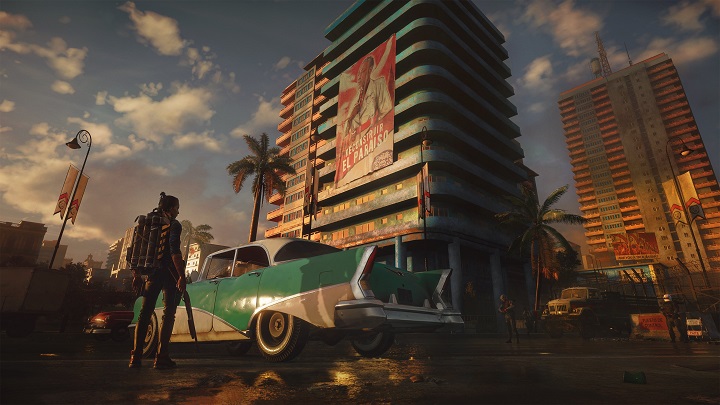
But disappointment with high-budget series has a chance to bring at least some good. Perhaps the aforementioned mid-range games will benefit – maybe someone will look at the bland Far Cry 6 and decide to give Deathloop a chance? Because although the biggest hits failed, 2021 was not so bad in terms of overall game quality. Apart from the mentioned AA games, there were also many smaller or independent titles: The Medium, amusing and terribly difficult Death's Door, painfully old-school Loop Hero. Well, if for some reason you signed a pact obliging you to buy a game published by Electronic Arts every year, instead of Battlefield 2042 or FIF-22 you can get It Takes Two. I guarantee that instead of a reheated chop, you will get a lot of freshness, instead of frustration and irritation – quality cooperation. And the chances that someone will offend your mother will be much smaller.
Unfortunately, players seem to have the memory of a goldfish. In a year, we will probably fall for Activision or Ubisoft's hype train again, if they only throw enough bells and whistles and a guest appearance of a popular actor in the trailers of their new games. But I must admit that this year's October and November also gave me some sadistic satisfaction, even despite the fact that I know how little will change in the end. The current wave of criticism sweeping big publishers can be truly cathartic for people tired with blowing the whistle of great, hyped fall releases, which offer little beyond formulaic ideas. So, we can try to find solace in the fact that in a sea of delays and disappointing releases, we've at least pinched the giant gaming corporations in the nose, reminding them that the real strength is in our hands, or rather – our wallets. No wonder they're so eager to empty them.

